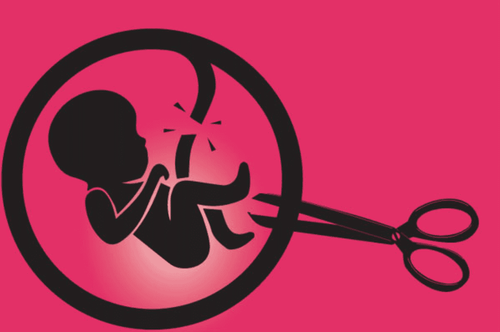This article is professionally advised by Tran Lam Khoa, MSC, MD - Obstetrics and Gynecology Department - Vinmec Central Park International General Hospital.
The signs of an unsuccessful abortion are not difficult to recognize, so women can completely identify abnormal symptoms after an abortion. However, due to many people being complacent and not seeking medical treatment immediately, this can lead to unforeseen consequences.
1. What is an Unsuccessful Abortion?
Abortion is a surgical method applied when the pregnant woman does not have acute systemic diseases (such as heart disease, high blood pressure, etc.), no genital malformations, or gynecological infections.
However, in reality, there are some cases where abortion is unsuccessful. Women may encounter common complications after abortion, such as uterine perforation, uterine adhesions, hemorrhage, infection, etc., especially the complication of retained pregnancy tissue.
Retained pregnancy tissue refers to the condition where parts of the fetus or placenta remain in the uterine cavity after an unsuccessful abortion.
2. Signs of an Unsuccessful Abortion
To recognize symptoms of retained pregnancy tissue after an abortion, women can rely on the following signs:
- Prolonged Vaginal Bleeding
Typically, after an abortion, women will experience vaginal bleeding for about 5-7 days (in some cases, up to 10 days), depending on individual factors. Small blood clots indicate that the pregnancy tissue is being expelled, and the uterine cavity is being cleared. The amount of bleeding is more abundant in the initial days but gradually decreases and stops. However, if bleeding lasts more than 10 days without signs of improvement, with the presence of numerous blood clots, brownish discharge, and a foul odor, it may indicate that the abortion was not performed safely and complications such as retained pregnancy tissue have occurred. - Severe Lower Abdominal Pain
After an abortion, due to the external surgical intervention and the uterine contractions to expel the post-abortion discharge, women may experience lower abdominal pain similar to menstrual cramps. This typically begins and ends with the bleeding. However, if the pain becomes severe and persists, with increasing intensity, it could be a sign of retained pregnancy tissue, requiring prompt medical examination. - Dizziness and Fainting
Dizziness and fainting are rare symptoms, but in cases where a woman experiences prolonged bleeding after an abortion, this can lead to significant blood loss, triggering signs of dizziness or fainting. - High Fever and Fatigue
Although an abortion is performed relatively quickly, it inevitably affects the body. When an abortion is unsuccessful and retained pregnancy tissue leads to infection, it can cause a high fever and fatigue. This is a typical sign of retained pregnancy tissue.
3. What Are the Consequences of an Unsuccessful Abortion?
If an abortion is unsuccessful, the woman is at risk for dangerous complications such as:
- Death: Severe dizziness can lead to circulatory failure, and without prompt intervention, it may result in death.
- Uterine Perforation: Uterine tears can occur during the procedure, leading to infection and hemorrhage. Prolonged abnormal bleeding that cannot be controlled is common, with retained pregnancy tissue being the most common complication.
- Infertility or Reduced Fertility: If pregnancy tissue remains in the uterus, it can cause infection. If not treated in time, this may lead to female infertility or reduced fertility, impacting the ability to conceive in the future.
- Fetal Abnormalities: In some cases, the abortion procedure may not completely terminate the pregnancy, but the child may be born with birth defects.
- Impact on Daily Life and Mental Health: Retained pregnancy tissue can cause abnormal symptoms and reproductive organ infections. This can lead to anxiety, distress, and discomfort.
Even when an abortion is performed safely, complications may still arise, affecting both mental and physical health. Therefore, women who do not wish to become pregnant should choose an appropriate and effective contraception method to avoid unwanted complications.
To help clients detect and treat gynecological diseases early, especially after an abortion, Vinmec offers a basic gynecological screening package to help detect infections and make treatment easier and more affordable. The package also includes early screening for gynecological cancers (e.g., cervical cancer) even if no symptoms are present.
The basic gynecological screening package is available for all women, regardless of age, and is suitable for those with the following symptoms:
- Abnormal vaginal bleeding
- Menstrual issues, such as irregular cycles or prolonged periods
- Abnormal vaginal discharge (unusual color or odor)
- Pain or itching in the genital area
Women with risk factors such as poor personal hygiene, unsafe sexual practices, or a history of abortion are encouraged to get checked. For further examination, clients can register at Vinmec International General Hospital or any Vinmec clinics nationwide.
Please dial HOTLINE for more information or register for an appointment HERE. Download MyVinmec app to make appointments faster and to manage your bookings easily.













